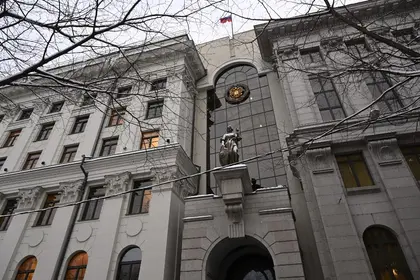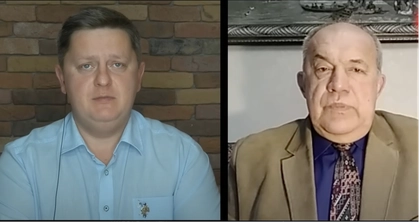Russia said Monday it has sentenced more than 200 Ukrainian prisoners of war to lengthy sentences, with some getting life in prison, almost two years into the Kremlin’s offensive.
Russia holds an unknown number -- believed to be in the thousands -- of Ukrainian captive soldiers, many of whom were taken during the siege of the port city of Mariupol in 2022.
JOIN US ON TELEGRAM
Follow our coverage of the war on the @Kyivpost_official.
Kyiv and international rights groups have denounced Moscow’s trials of the POWs as illegal.
“More than 200 Ukrainian military personnel have been sentenced to long prison sentences for committing murder of civilians and mistreating prisoners (of war),” Alexander Bastrykin, the head of Russia’s Investigative Committee, said in an interview to state news outlet RIA Novosti.
He vowed Moscow will “continue” its efforts to prosecute Ukrainian military staff, including “high-level officials.”
Many of the Ukrainian prisoners of war have been held in Russian-occupied eastern Ukraine, while others were taken to Russia.
Bastrykin did not specify if the soldiers were sentenced in Russia or occupied Ukraine.
But state-run outlet RT quoted an Investigative Committee source as saying 242 soldiers were sentenced in occupied Ukraine.
On January 3, Russia and Ukraine said they had swapped hundreds of captive soldiers in their first publicly announced exchange in months.
Bastrykin also revealed details about Russia’s fight against pro-Ukrainian sabotage.

Holiday Spirit Thrives Among Ukrainians Despite War, Study Finds
He said authorities had uncovered railway sabotage in regions near the Ukraine border such as Bryansk, but also in the Siberian regions of Tyumen, Tomsk, Novosibirsk and the northern Komi region.
“In the conditions of the special military operation, we can see Ukrainian special services are trying to wage their subversive activities, using terrorist methods, despite possible accidental victims,” Bastrykin said.
He warned Russians are being “misled... promised rewards and pushed to commit illegal acts.”
Russia and Belarus have been affected by mysterious rail derailments, possibly aimed at disrupting army supply routes to Ukraine.
Bastrykin said extremism cases had risen “62 percent” in 2023 compared to 2022 -- a likely indication of Moscow’s far-reaching crackdown on dissent as troops fight in Ukraine.
He said Moscow had launched 273 cases for “spreading fakes” on the Russian army and 81 cases on “discrediting” Moscow’s forces.
Russia has used the legislation to stifle criticism, punishing thousands for denouncing the Ukraine campaign.
Opposition figure Ilya Yashin is serving an eight-year sentence under the law on “spreading fakes”, while artist Sasha Skochilenko is serving seven years.
You can also highlight the text and press Ctrl + Enter






